11-11 Memories Retold Review
11-11 Memories Retold
This game is important, because of the way it makes you think, without ever telling you what to think. Lest we forget.
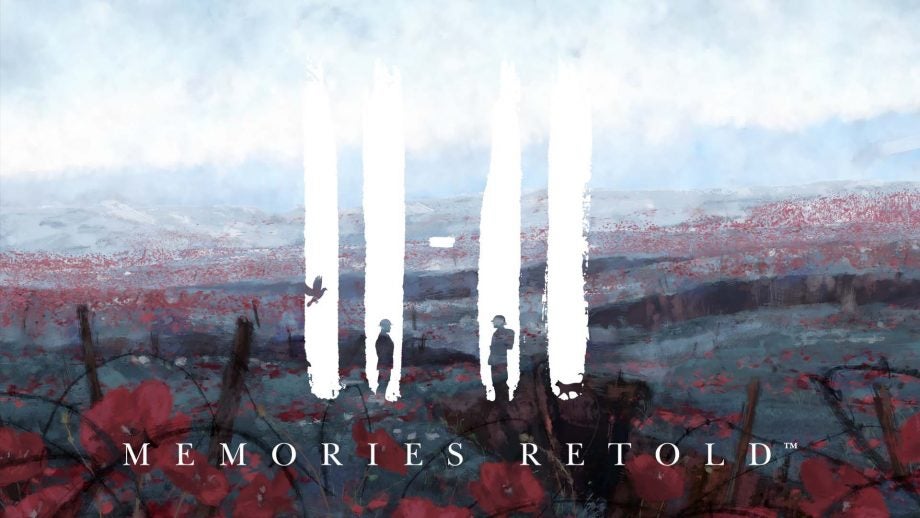
Verdict
You should play 11-11, and not just because it's a chance to enjoy a captivating piece of interactive storytelling. This game is important, because of the way it makes you think, without ever telling you what to think. Lest we forget.
Pros
- An engrossing, emotionally stirring and distinct piece of interactive storytelling
- Thought-provoking and important as a means to reflect on war's impact
- A war game for everyone, from 'non-gamers' to devoted players
- Visually distinct and sonically rich
Cons
- A few too many bugs in the review code played
- Gameplay mechanisms will feel very familiar to seasoned gamers
- The strong visual style occasionally slips up
- Can leave the player feeling too unaided
Key Specifications
- Review Price: £24.99
- Release date: November 9, 2018
- PC, PS4 (version tested), Xbox One
- Developer: DigixArt Studios/Aardman Animation
- Genre: Narrative Adventure
When video games tackle war as a theme the focus is usually on the combat itself.
Staring down the barrel of a rifle. Delivering orders to a tank squadron. Dog-fighting above smouldering landscapes. Those are the mechanics through which players can typically explore conflict. War games are so often violent games.
It turns out, however, that taking just a few steps away from the intimacy of that violence can bring enough perspective to consider the broader impact of war.
11-11: Memories Retold is foremost a game about the non-combatant military roles: those people that keep the war going without picking up arms. That’s not to say this collaborative work by acclaimed animation outfit Aardman and French game maker DigixArt steers entirely away from the brutality of the battlefield.
The theatre of war often serves as the game’s centre stage. But we must tread carefully here. This is a game defined by the beats of its storyline, so to detail its narrative too precisely would be to spoil the experience of playing it. That’s something this review will avoid entirely. In 11-11’s opening moments, at least, we find two men lured into war with no intention of picking up a gun.
Related: Best Xbox One Games
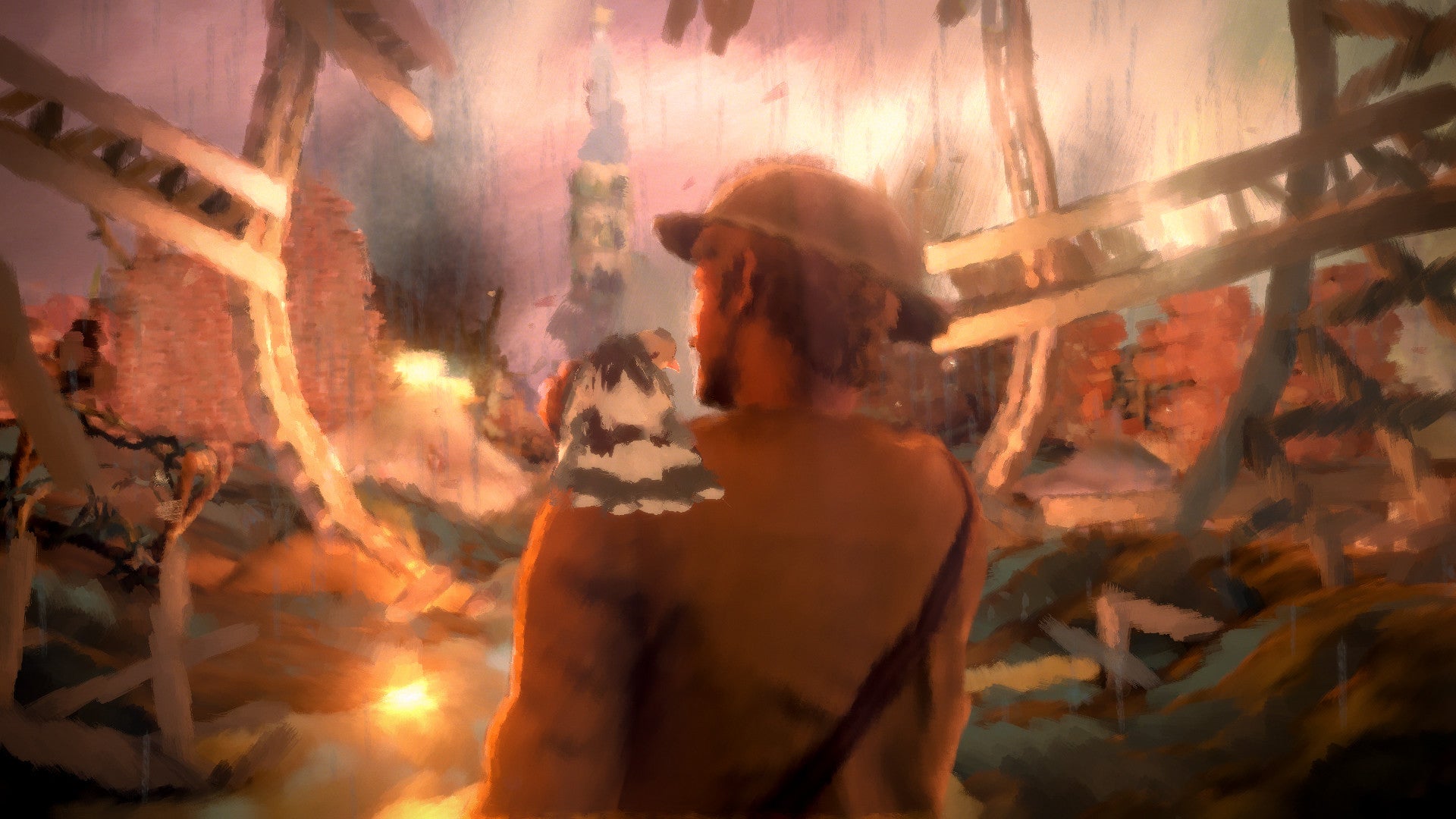
World War 1 is the setting, and more specifically the deep rooted horror of the trenches. Yet despite playing out in one of history’s most famously gruesome locations, 11-11 doesn’t strive to wrench the guts of its audience by constantly spotlighting the suffering of the conflict’s ground troops. It is neither a celebration of violence nor a morbid study of brutality.
The game touches on the misery of fighting, certainly, but really it is about how far-reaching war’s impact can be. 11-11 is also a tale of compassion in humanity’s darkest hours, and an attempt at understanding the individual experience of becoming lost to the vast plane of meaningless and confusion where war really takes place.
The player’s task is to guide both the game’s leads through their experience of WWI. Kurt is a German soldier that has enlisted to head to the front lines. His motivation? His son Max is missing in action, and he sees taking a personal trip to the trenches as providing the best chance he has of finding out the truth of his progeny’s destiny. Working as an engineer fixing frontline infrastructure, he was never focused on killing his enemies.
Harry, meanwhile, is a Canadian photographer lured into signing up to support the allied effort. Beguiled by a charismatic English major who promises adventure, a chance to impress the woman he adores, and an opportunity to commit history to film, Harry heads to the war, imagining he will serve purely as a documentarian.
Related: Best PS4 Games
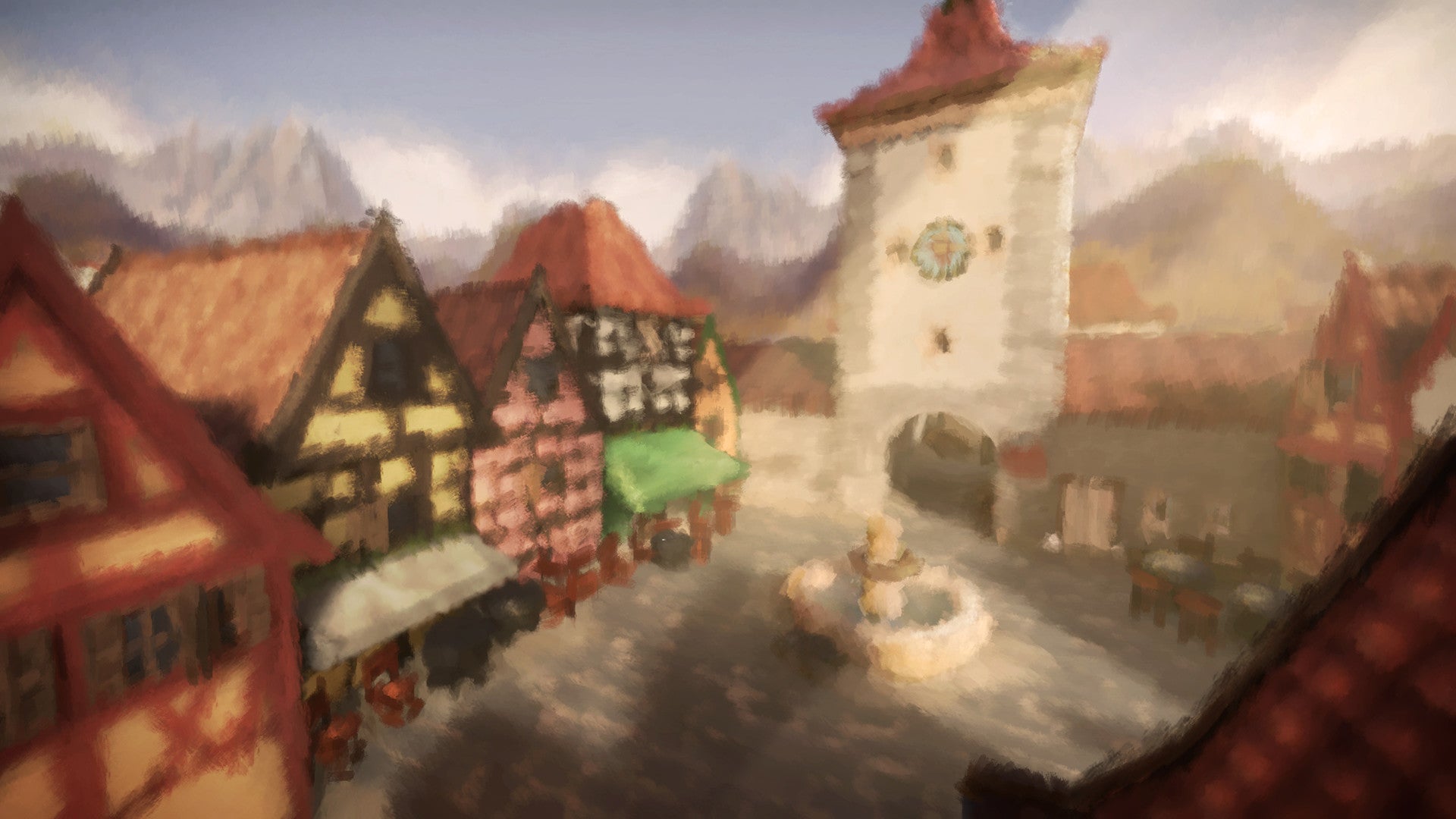
Both soon find out that their journey through WWI will be about much more than their reasons for enlisting. Eventually, the two men’s lives become entwined, both close to the battlefield and back home, far from the trenches. And that is 11-11’s core theme. Combat is a shared experienced.
The enemy sides might be diametrically opposed by their causes, but war brings them closer together than they might want to imagine. The individuals fighting on either side aren’t so different from one another. And it is that thought that really highlights the waste and stupidity of armed conflict.
Everything in 11-11 is framed by the ticking clock that counts down to armistice, and the return to peace. The narrative here is broad and complex, and Harry and Kurt see their motivations and loyalties shift and change.
Throughout, the game is presented in a soft, hand-painted style. Every scene and object is rendered as thousands of specks of colour, bringing an atmospheric, even abstract feel to the game. So thick are the digital brushstrokes that make up 11-11, details like writing on signs are illegible. Even faces can be indistinct, and military history pedants won’t ever have the chance to check if the serial number of a weapon is correct. It’s a bold aesthetic choice we’ll return to below.
Related: Best Nintendo Switch Games
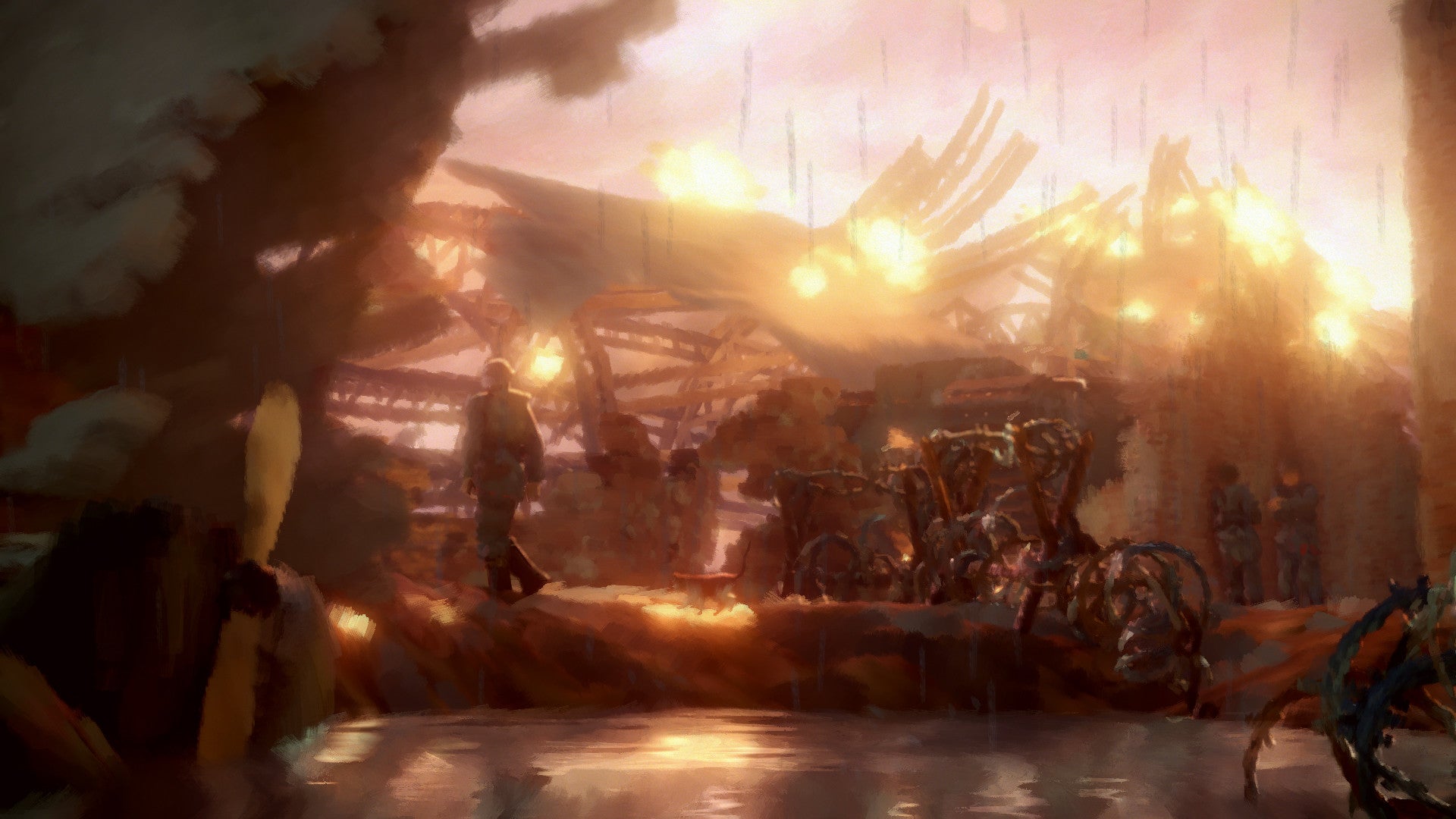
Strictly speaking, 11-11 is actually a third-person narrative adventure game. It even bears comparison with traditional ‘adventure games’ like Monkey Island, albeit without the silliness. And it certainly explores some of the mechanisms of interaction previously seen in David Cage’s games, where subtle player choices can influence the narrative and its conclusion.
That means plenty of exploration on foot, solving environmental puzzles, and conversing with in-game characters to uncover various truths. The plot hops back and forth between the stories of Max and Kurt, leaving you to assume to role of either. At points, you can even move between the two in real time as you wish.
You’ll write letters home to various other characters, choosing what you detail and how you frame it, apparently impacting the narrative forming a head of you. The more you see, hear, find – and in Max’s case, photograph – the more you can share in communicating with other characters. There are moments when you must make key decisions under pressure; sometimes you’ll have to respond in conversation with one of a selection of responses, and elsewhere you’ll need to make fight or flight choices that push you – and the game – in different directions. It is difficult to know how much impact the small details you share in-game have, but those explicit A/B choices? Repeated playthroughs reveal they can make fairly significant changes to the game’s outcome.
There’s also a sprinkling of light relief and playful charm to 11-11. Those moments are few and fleeting, but the game does recognise the very human ability to find reasons to smile in the darkest experiences. Some of the relief comes from Harry and Max’s occasionally controllable animal friends. Harry trains a pigeon that becomes his loyal assistant, while Kurt is chosen by a cat that follows him wherever he goes.
Certainly, 11-11 delivers an exceptional piece of storytelling that is engrossing, touching and thought-provoking in equal measure. It perhaps relies on a few too many coincidences to assure Harry and Max’s lives remain entangled, but that is utterly forgivable considering the narrative’s ability to make you think about humanity and conflict in new ways, without ever explicitly educating or lecturing you. This is a game steeped in historical accuracy, but it only ever asks you to ponder what war is, rather than tell you facts about it.
Related: Best Gaming Headset
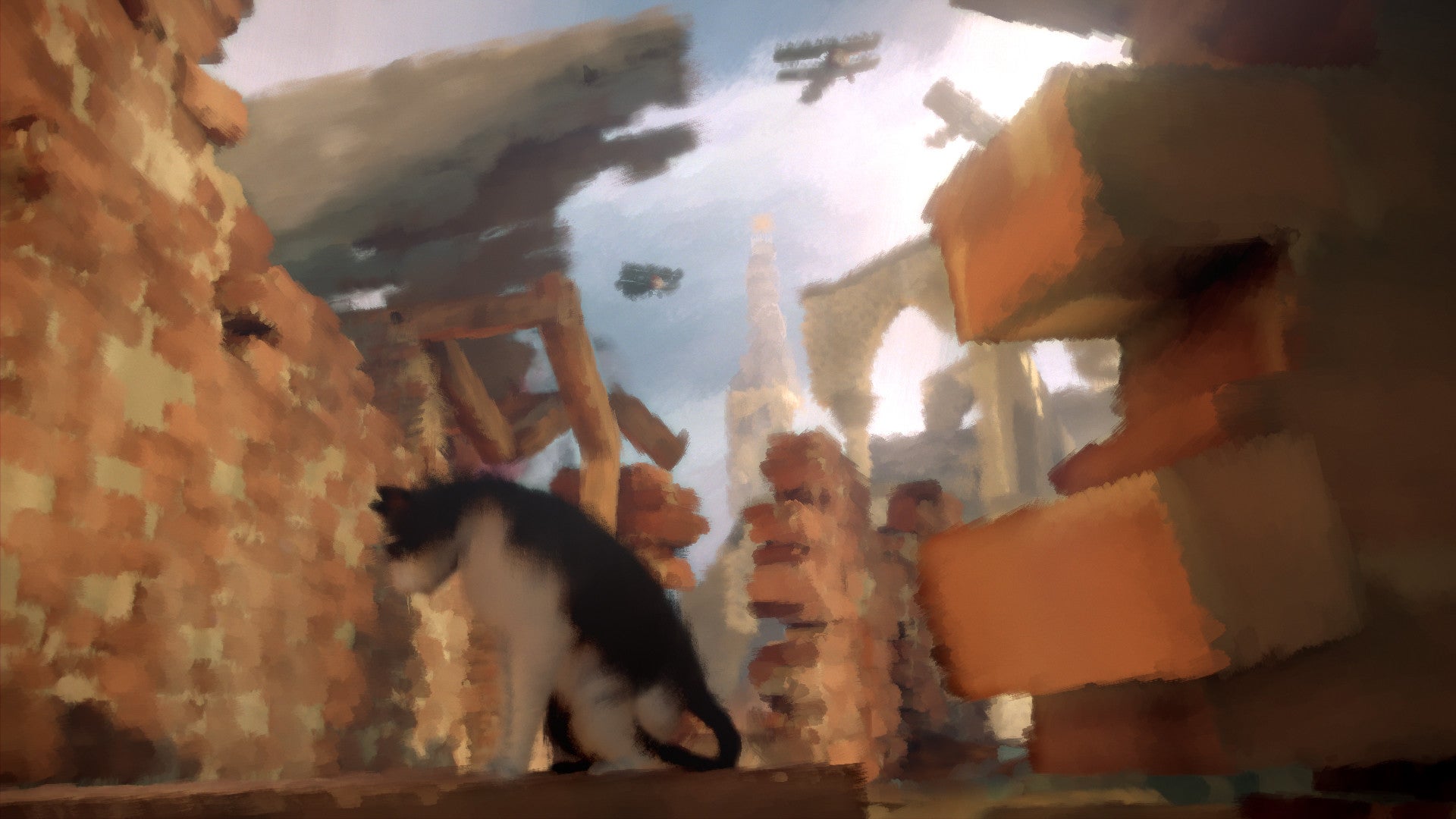
The audio of 11-11 is a particular highlight. An understated, evocative score brings a weight to proceedings that might otherwise be missing, and the background sound effects make everything all the more convincing and present. Equally the voice cast – including Elijah Wood as Harry and Sebastian Koch as Kurt – contribute consistent, compelling performances.
The visual style of the game, meanwhile, is bound to be divisive. In stepping away from realism and into the heavily stylised, it will ultimately be a matter of taste. The hand-painted effect can be exquisite; particularly in the gently boiling paintings that make up the cut-scenes. During gameplay, there is an equal capacity for nuance and beauty; predominantly during set-pieces where the player’s path is linear to the extreme. But on the very odd occasion, the hand-painted look can appear a little ungainly, giving the impression of a rather dated 3D game.
More common, sadly, are bugs. Some are purely visual; perhaps a character will pass though Kurt or Harry as they walk by. Occasionally a new scene would start with a flash of an image from a previous cut-scene. Once or twice the camera would get lost inside the protagonists’ heads. More impactful is a smattering of interactivity glitches. At a point opening a drawer to pick out a note hidden inside would glue Harry to the spot, meaning reloading the checkpoint.
Just once calling up menu came without any way select an option or move back into the game; another effective freeze up. A day-one patch is promised, and that promises to tackle many such problems. I played the game on disk-based code made available a handful of days before the release, so we can only comment on that build of the game. It would be great to see those bugs banished, as they do intrude on a wonderful experience.
Related: Best Gaming Keyboard

The play itself – or at least the interactions away from the narrative – will be fairly familiar to seasoned gamers. There is little truly new here, in terms of the ways you explore the game world. Every time you haul a crate away to clear a path, fetch an object for a non-player character or search for a particular point in the game world to advance the plot, you’ll be doing something seen in myriad games before.
But that’s almost to miss the point. 11-11 uses familiar forms of interaction to deliver a great story. This is a narrative adventure – not a mechanical game of reactions and skill. The gameplay changes as it needs to carry the story, whether you’re steering a ship through danger or searching for supplies underground. The relative simplicity of the interactions also makes 11-11 a game for everybody. It isn’t ‘casual’ and it isn’t ‘hardcore’.
It’s a story written in a language of interaction that anybody can understand. And clocking in at a handful of hours, 11-11 is a shorter form of experience, but there are plenty of reasons to play through again, from exploring alternative narrative progression to mopping up every last collectible.
There’s a devotion to minimalism in the game’s design too, that takes a double-edged sword to the 11-11 experience. There are few ways to plot your route through the environments. Only subtle white dots guide you to goals. The abilities at your disposal are exceedingly limited. This is a game that leaves you to work things out yourself. There’s little intrusion by conventions of game design and user experience, which makes it easy to lose yourself to the story than be reminded of the medium you are consuming. But while the mechanical minimalism keeps things rewarding, the limited guidance can on occasion leave you lost to frustration.
11-11 is a game that can be forgiven for the modest shortcomings it does sport. Because it is much, much more than a generic adventure draped over generic mechanics. It is powerfully engrossing and exceedingly smart in the way it provokes contemplating what war is, and what it was like to pass through a global conflict that concluded 100 years ago almost to the day of the game’s release.
Verdict
You should play 11-11, and not just because it’s a chance to enjoy a captivating piece of interactive storytelling. This game is important, because of the way it makes you think, without ever telling you what to think. Lest we forget.

